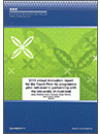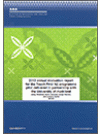This evaluation’s main purpose is to understand how well the programme has been implemented and to what extent it has achieved its objectives. The key evaluation questions are:
- How well (effectively and efficiently) has the programme been implemented?
- To what extent has the programme achieved its overall outcomes and objectives?
To answer the evaluation questions the evaluators developed a set of evaluation criteria in consultation with the Ministry and the Teach First NZ partnership. Our key findings are provided for each of the evaluation questions in relation to these criteria.
Methodology
The evaluation data for the first year of the Teach First NZ pilot programme were collected through document analysis, an online survey (Me and My Class) administered to students, interviews, and site visits to the nine schools hosting the 16 participants that make up the 2013 cohort.
The interviews were with key personnel in schools (including participants, mentors, co-ordinators, Heads of Department/Heads of Faculty/Heads of Learning Area (HoDs), principals, and other teachers in the school including New Zealand Post Primary Teachers Association (PPTA) office holders) and with the Teach First NZ partnership and Faculty employees (including VCSs, and staff who teach on the university’s established Graduate Diploma in Teaching (Secondary). Two members of the evaluation team also spent a day observing an Assessment Centre (selection day) which involved interviews, a group exercise, a sample teaching lesson, and self-evaluation.
Key Results
The programme was, in general, successfully implemented, with the Teach First NZ partnership being seen to provide timely and responsive support to participants and schools. The rigorous selection process and the high calibre of the 2013 cohort were seen by the evaluation team (based on the views of the different groups of people we talked to) to be major strengths of the programme. School principals and co-ordinators spoke highly of the participants and the Teach First NZ partnership staff. Where there were any issues, reported by a minority of schools during the year, these appeared to relate, for the most part, to in-school issues (including inadequate communication between some personnel). To a large extent, variations in implementation depended on the clarity of internal school communications about the Teach First NZ programme, the suitability of organisational arrangements (including timetabling), and the placement of the participant (for example, whether located in the same department as their mentor), the learning culture within their department, and the quality of the mentor.
Where there were any issues, reported by a minority of schools during the year, these appeared to relate, for the most part, to in-school issues (including inadequate communication between some personnel). To a large extent, variations in implementation depended on the clarity of internal school communications about the Teach First NZ programme, the suitability of organisational arrangements (including timetabling), and the placement of the participant (for example, whether located in the same department as their mentor), the learning culture within their department, and the quality of the mentor
The second evaluation question looks at how well and to what extent the programme achieved its overall outcomes and objectives. To answer this question, the evaluation focused on: the effectiveness of participants’ teaching, their level of support for the pastoral life of the school, the leadership development strand of the programme, the ongoing involvement and/or retention of participants, programme impact on quality of teaching and learning in participating schools, status of teaching, enablers and barriers to success, and alumni engagement. On the basis of the data we have collected so far, we can make some preliminary judgements about the 2013 cohort’s teaching, engagement in the pastoral life of the schools, and leadership development.


